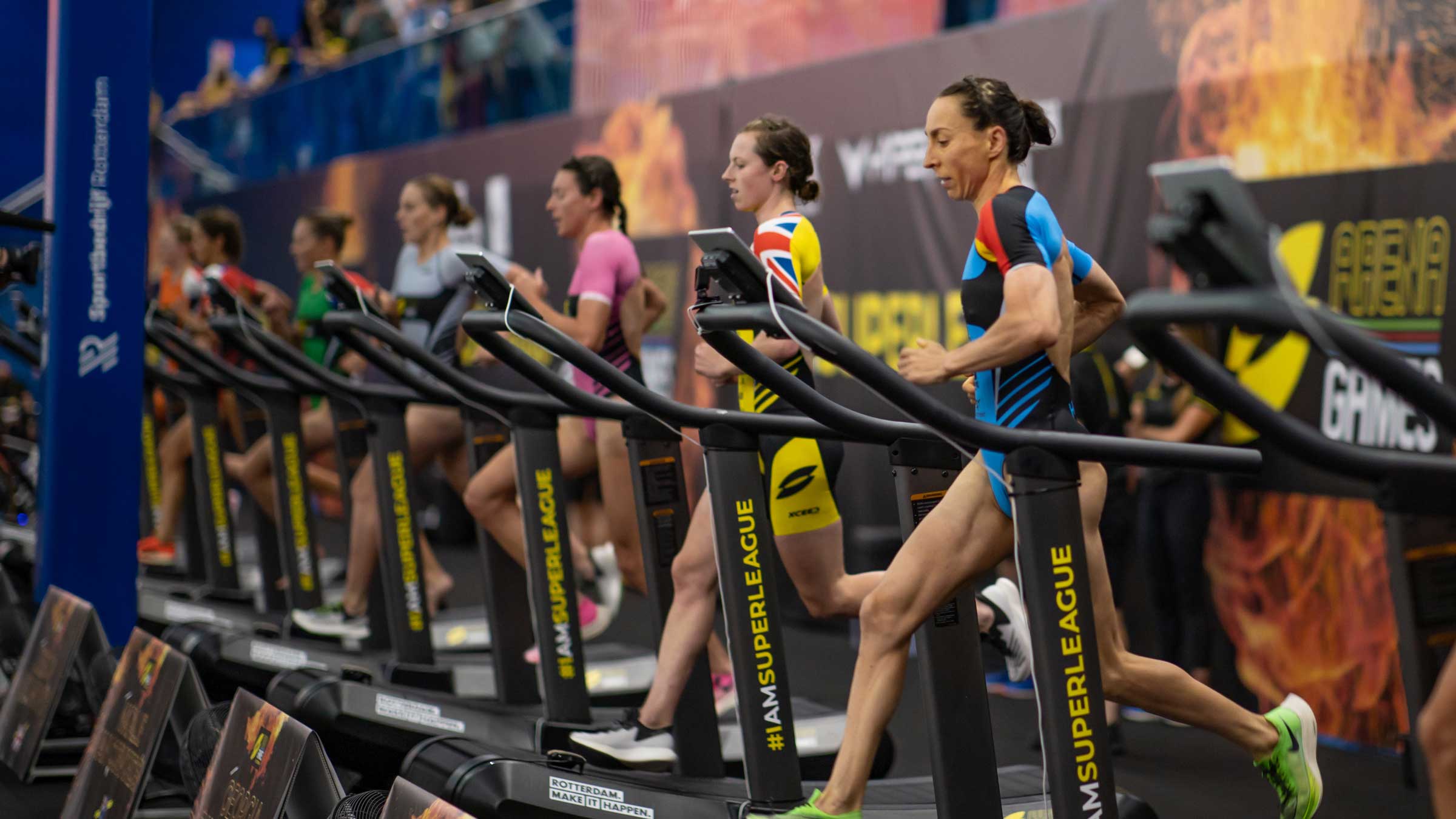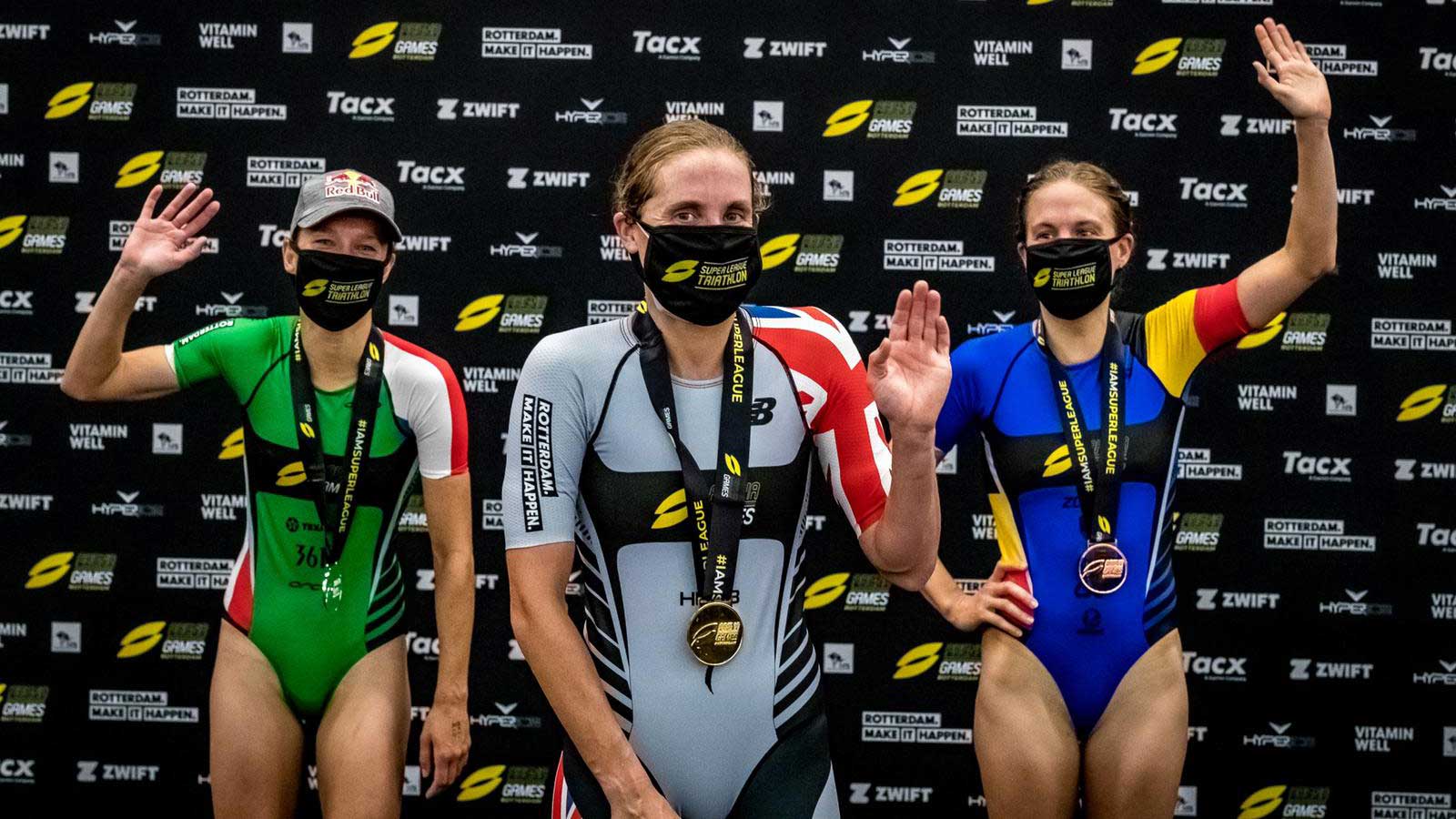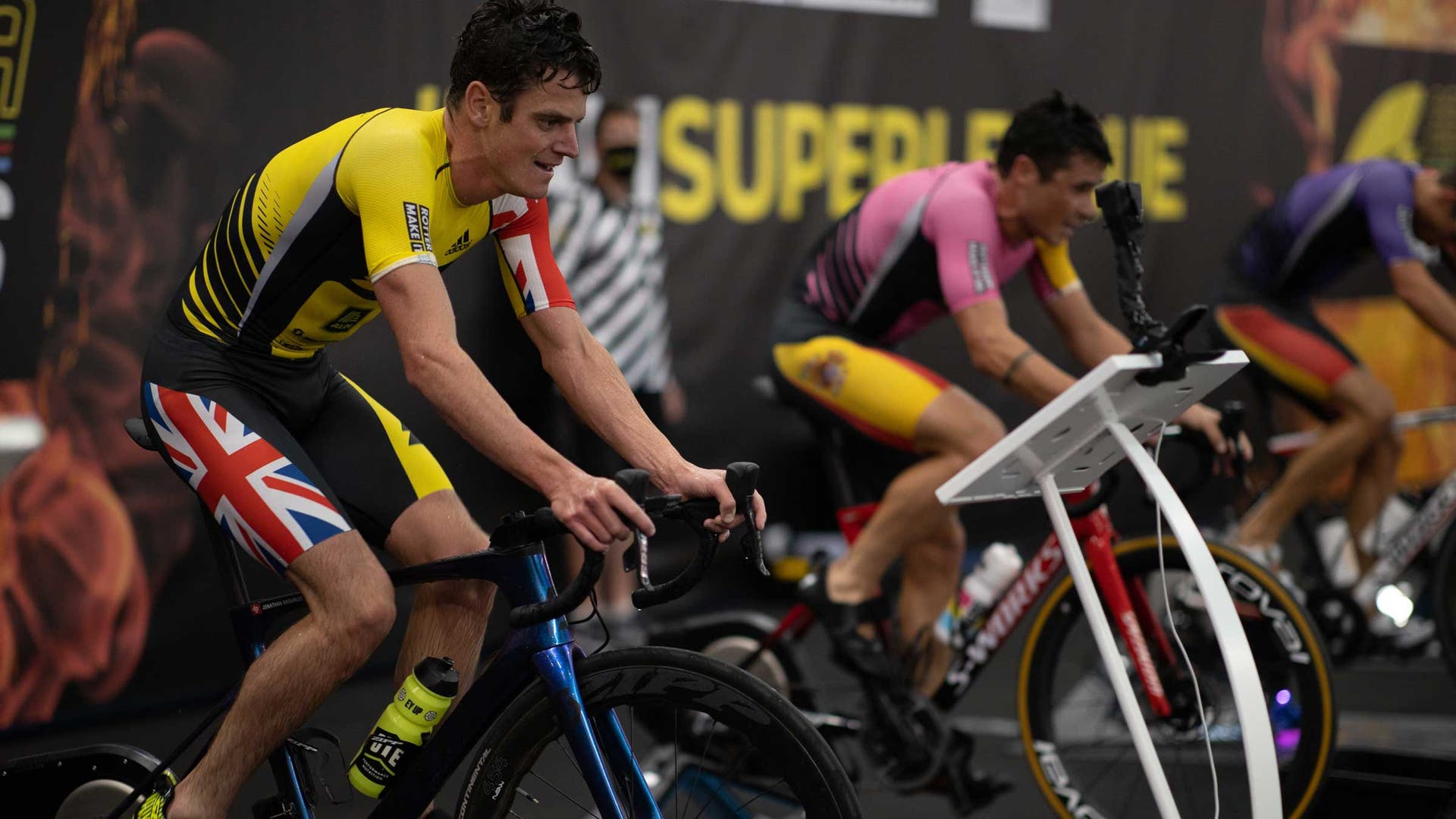Last Weekend Now: Professional Triathlon is Back—Kinda

(Photo: Super League)
Last Weekend Now is your Monday morning rundown of what’s happening in pro triathlon, brought to you with commentary by Brad Culp. (Ed note: So yell at him if you don’t like the comments.)
After a hiatus of 162 days, professional triathlon made a somewhat triumphant return with the debut of Super League’s Arena Games this weekend—a unique format that blended real and virtual racing to create something that looked extremely painful and made for a decent TV package. In case you were busy watching real sports or spending quality time with your friends and family yesterday, I’ll try to explain what the Arena Games were as best as possible.
Ten men and 10 women competed in a “triple mix” format at a really nice 50-meter pool in Rotterdam, Netherlands. On the pool deck were bikes connected to smart trainers and curved treadmills, both of which were linked to Zwift. Each stage consisted of a 200-meter swim, 4K bike, and 1K run, but the order changed on each of the three stages. Stage one was the traditional swim-bike-run, followed by bike-run-swim on stage two and run-swim-bike on the final stage. Athletes received 10 points for winning a stage, down to 1 point for finishing 10th.
The biggest wildcard were the self-propelled curved treadmills, which studies have shown to be at least 30 percent more difficult than traditional treadmills or even outdoor running. In theory, it gave an advantage to heavier athletes who could apply for force to the tread, and that seemed to bear out somewhat in the results.
Britain’s Jessica Learmouth made it a clean sweep in the women’s race, finishing first in each stage for a total of 30 points. That put her comfortably ahead of the Netherland’s Rachel Klamer, who finished second with 23 points. Other high-profile athletes among the women were Britain’s Georgia Taylor-Brown (5th with 19 points) and reigning Ironman world champ Anne Haug (9th with 9 points). Needless to say, this style of racing did not suit Haug’s skillset.

There were some highlights and hiccups for the live TV broadcast, which Super League continues to do better than anyone else in the triathlon game—not that that’s saying much. There was a bit too much focus on the Zwift component during the bike and run segments, instead of showing us the actual athletes burying themselves.
As Learmouth sprinted to the line to win the final stage, I can only assume that her face appeared as anguished as William Wallace’s at the end of Braveheart, when that medieval traction device is ripping his spine apart. But instead, the live feed was showing the avatar of some Dutchwoman named Quinty Schoens meander through a virtual Rotterdam to finish dead last.
The men’s race also involved a trio of marquee names and six or seven guys you’ve probably never heard of unless you’re way too into this sport. Javier Gómez, Johnathan Brownlee, and Richard Murray were the big draws, but they’d have to take a backseat to Germany’s Justus Nieschlag, who was dominant on the swim and run legs to take the victory with 24 points. Portugal’s Vasco Vilaca took second and the title of coolest name ever, with Gómez rounding out the podium. Not bad for his first time racing a Super League format in three years. Brownlee ended the day in fourth, with Murray finishing back in 8th.

Was it great racing? Not really. Was it real racing? You can be the judge. But Super League becoming the first to put on a race since COVID became a thing underscores their commitment to professional triathlon, and I salute them for being the most innovative organization in the sport.
Now Time for ‘Real’ Racing?
Speaking of commitment to professional triathlon, the Professional Triathletes Organization (PTO) continues to show it’s aptly named by continuing to pump money into the depleted checking accounts of professional triathletes. Last week they announced they would be doubling the prize purse for this upcoming weekend’s Challenge Davos, which will be the first real (i.e. outdoor) pro triathlon to take place since the Mooloolaba World Cup on March 14.
That means athletes can win up to €6,500 ($7,700 USD) in Davos, which is enough to draw the likes of Kristian Blummenfelt, Sebastian Kienle, Joe Skipper, Laura Philip, and Imogen Simmonds. The additional money the PTO is pumping into the prize pool is being allocated based on net expected time, which I won’t bore you with right now. But basically it means the women have a chance to earn more than the men. It’s all part of PTO’s commitment to be “not merely gender equal, but gender neutral.” So now we have a new leader in the clubhouse for most politically correct organization in the sport.
I’ll be back next week with a recap of Davos, and [fingers crossed] a rundown of ITU WTS Hamburg the first weekend of September. And who knows, maybe by this time next year we’ll have some real races to report on in the U.S. too.